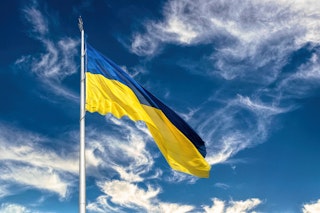In response to the Russian attack on Ukraine, the EU, the United States, the United Kingdom, Canada and other allies have launched several extensive packages of sanctions. In this newsletter, we will provide an overview of the EU sanctions, and address some issues that players within the shipping sector should be aware of. Norwegian companies may also be impacted by sanctions imposed by US, UK and other jurisdictions. Breach of sanctions may potentially be subject to criminal and civil liability.
Background
The imposed sanctions are far-reaching and intended to limit the Russian state’s ability to raise capital by freezing approximately $640 billion of foreign currency reserves held by the Russian central bank. The sanctions also target Russian banks, oligarchs, members of the DUMA, certain specific sectors (defence, energy, tech, aviation) as well as the Donetsk and Luhansk regions. The EU and US have also banned aircrafts owned, controlled by or registered in Russia from their airports and -space, and bans have also been placed on certain Russian state-owned media. Due to Belarus' support to Russia in the military operations in Ukraine, sanctions have also been imposed to target several individuals and entities in Belarus.
In the EU, sanctions are implemented as regulations and are directly applicable. Norway has announced that it will adhere to all EU sanctions, and transposition into Norwegian law is expected soon.
Addressing sanctions
To ensure compliance with the abovementioned measures, all companies should map their exposures to Russia, Donetsk and Luhansk and Belarus. This includes for example current relationships with entities based in Russia or owned by Russian interests, involvement with Russian banks as well as other operations or transactions involving Russian entities, activities or territories. All such relations should be thoroughly considered and assessed, both from a legal and commercial perspective. As a matter of policy and in efforts to show condemnation of the Russian aggression towards Ukraine, multiple companies have already announced that they will take steps which goes beyond what is strictly required under the current sanctions regime.
In addition to assessing whether an activity is legal, it should also be assessed whether it could be in breach of contractual obligations. Many contracts and financial facilities contain sanctions clauses with a wider scope than what would be strictly in breach of sanctions. Companies should also consider and take into account that activities that are legal and in accordance with contractual obligations today could be covered by sanctions in the near future. If activities are carried out, companies should also implement measures to mitigate the settlement risks for such activities.
As the attack on Ukraine continues and the use of military power escalates, the sanctions regime is also expected to be rapidly extended and amended. What is deemed to be in compliance with the adopted restrictive measures today, may be prohibited or in breach of contracts tomorrow. The EU is continuously publishing information regarding sanctions in various channels, such as through press conferences, its websites etc. However, it normally takes a few days before relevant regulations are adopted as law, and in the meantime, the EU may have signalised that new sanctions will be imposed.
Overview of sanctions
The imposed EU sanctions affect trade and interaction with Russia in multiple ways, including:
Asset freeze - Designation of persons and entities
The consolidated sanctions lists are continuously expanded. All funds and economic resources belonging to, owned, held or controlled by any designated persons or entity shall be frozen. No funds or economic resources shall be made available, directly or indirectly, to such persons.
New persons added to the lists include the Russian president, the minister of foreign affairs, members of the DUMA and other members of the Russian financial elite. The expanded scope of the list increases the risk that existing clients and counterparties are subject to asset freeze obligations.
Export and imports
Most export to and imports from Russia, as well as Donetsk and Luhansk in Ukraine, will in practice be affected directly or indirectly by the imposed restrictive measures.
Some sectors are, however, specifically impacted by the imposed prohibitions to sell, supply, transfer or export, directly or indirectly certain items within the below listed categories to any person, entity or body in Russia or for use in Russia:
- dual-use goods and technology;
- certain items and technology that could contribute to the enhancement of Russia's military might contribute to Russia's military and technological enhancement or the development of the defence and security sector;
- goods and technology suited for use in oil refining; and;
- goods and technology suited for use in aviation or the space industry.
It is also deemed illegal to provide such persons with related technical assistance, brokering services or other services, both directly and indirectly, in addition to providing financial assistance related to such goods and technologies.
The extended export control regime is imposed to items that the EU considers “might contribute to Russia’s military and technological enhancement, or the development of the defence and security sector.”
The more specific list of restricted items is extensive, and amongst other things include a wide variety of electronics, computers, telecoms, information security, sensors and lasers, navigation and avionics, marine, and aerospace items not already controlled under the already existing Dual-Use List. Furthermore, the list includes mass market encryption items that are otherwise decontrolled under standard EU dual-use export controls.
Note, however, that the prohibitions described in the two first bullet points above do not apply if the assistance is carried out for non-military use and for a non-military end user intended for a) humanitarian purposes, health emergencies or mitigation of events which are likely to have a severe impact on human health, safety or the environment or as a response to natural disasters; b) medical purposes; c) certain media purposes: d) software updates; e) use as consumer communication devices; f) ensuring cyber-security (except for Russia's government); and g) personal use of physical persons travelling to Russia.
Competent authorities may, however, authorise such sale, supply, transfer or export which is described as prohibited above, for non-military use and for a non-military end user, if it considers that certain strict requirements are met.
Companies dealing with technologies within these sectors should re-assess their export control compliance risk assessments and map out any technology directly covered by the new prohibitions and whether the exceptions to the prohibitions apply. Also, companies supporting export of technology financially or technically should be vary of technology encompassed by the prohibitions.
The financial sector
A wide range of financial sector sanctions are imposed, including:
- Russian Central Bank asset freeze: Any transaction related to the management of reserves or assets of the Russian central bank, including any person acting on behalf of it, are prohibited. This targets Russia’s foreign currency reserves – about $630 billion.
- Russian government, including the Central bank or entities acting on their behalf: It is prohibited to purchase, sell or provide investment services for or assist in issuing or dealing with transferable securities issued by Russia, its government, the central bank or persons acting on their behalf. It is also prohibited to provide new loans or credit.
- Certain Russian institutions excluded from the capital markets: Additional restrictions have been placed on capital markets and loan transactions with key Russian institutions. It is prohibited with any direct or indirect purchase, sale, investment services or assistance in issuance of transferable securities or money market instruments issued after 12 April 2022 by any of the specified entities. This includes i.a. major credit institutions and certain institutions with over 50% public ownership. It is also prohibited to provide new loans or credit.
- Russian Direct Investment Fund: It is prohibited to invest, participate or otherwise contribute to projects co-financed by the Russian Direct Investment Fund.
- Trading venues (listing of state-owned entities): As of 12 April 2022, it is prohibited to list and provide services on trading venues for the transferable securities of any legal person, entity or body established in Russia with over 50 % public ownership.
- All Russian persons and entities as investors/depositors: Several measures target the ability of all Russians persons and entities to invest in the EU. This includes:
Deposits: It is prohibited to accept deposits from any Russian national, natural persons residing in Russia or any legal person or entity established in Russia, if the total value of the deposit exceeds EUR 100 000. Credit institutions shall further report deposits in excess of EUR 100 000 to the competent authority.
CSD-services: It is prohibited for central securities depositaries to provide any services for transferable securities issued after 12 April 2022 to Russian nationals, natural persons residing in Russia or legal persons incorporated in Russia.
EUR-denominated securities: It is prohibited to sell any euro denominated transferable security issued after 12 April 2022 or UCITS with exposure to such securities, to any Russian national or natural person residing in Russia or any legal person, entity or body established in Russia. - Euro denominated bank notes: It is prohibited to sell, supply, transfer or export euro denominated banknotes to Russia or to any natural or legal person, entity or body in Russia, or for use in Russia.
- Public financing or financial assistance: It is prohibited to provide public financing or financial assistance for trade with, or investment in, Russia. Certain exemptions apply.
- SWIFT: Certain Russian banks have been excluded from Swift and other “specialised financial messaging services” as of 12 March 2022. SWIFT is the messaging system which is used in international payments. By excluding the banks from SWIFT, the banks will in practice not be able to make international payments, which impacts payment for Russian import/export generally. It is to be noted that key Russian banks such as Sberbank and Gazprombank are not excluded from SWIFT (which are the main channels for payments for Russian oil and gas). The excluded banks are VTB Bank, Bank Rossiya, Bank Otkritie, Novikombank, Promsvyazbank, Sovcombank and VNESHECONOMBANK (VEB) (and their subsidiaries in Russia).
Several of the sanctions have limited exceptions.
Counter sanctions: Russia has reportedly issued counter sanctions, including capital controls, banning Russians from transferring foreign currency abroad and from servicing loans in foreign currency outside the country.
The total impact has and is expected to continue to greatly impact the Russian economy. It should also be noted that even though certain transactions may not be subject to a specific sanction, all payments for Russian import/export and cashflow out of Russia may be impacted by for example disrupted payment flows due to the imposed measures.
Ukraine risk for shipping sector - how does the Russian invasion affect players within the shipping industry?
While the Ukraine crisis has effects on almost all industries, we see that the shipping industry as a fundamental part of global trade is heavily affected. As the situation in Ukraine is changing by the hour, it is not possible to provide an exhaustive list of relevant scenarios that could play out for the parties within the shipping industry. The below is therefore a brief overview of some issues that shipowners, operators, charterers and insurers should be aware of.
With sanctions imposed on Russian and Belarus interests by the EU, US and others, it is essential that parties check and analyse their contractual arrangements, both existing and new terms and conditions. More specifically, parties should not only investigate their contractual counterparts, but also the entire ownership structure of the company group. Briefly put, US and EU sanctions applies if vessels or entities are "owned or controlled" by a listed or sanctioned entity or person. As the sanction lists are changing continuously, it is crucial to check the latest lists.
It is further important that shipowners take measures in order to avoid carrying cargo that are subject to western sanctions, e.g. Regulation (EU) 2022/263 which, as a main rule, prohibits (i) importation into to the EU of goods originating from the non-governmental controlled areas of the Donetsk and Luhansk oblasts of Ukraine, (ii) to transfer and export specified goods and technology suited for use in the following key sectors; transport, telecommunications, energy, oil, gas and mineral resources, to any natural or legal person, entity or body in the said areas, and for use in these territories. We also point at Decision (CFSP) 2022/327, which in principle and somewhat simplified, prohibits to transfer and export all dual-use goods and specified technology to Russia.
Several contractual issues – inter partes – may also arise for shipowners, charterers and insurers. Parties should carefully check and analyse their contractual terms in order to determine what parties are entitled or not entitled to. We highlight some scenarios below:
- Refusal to transit in the Black Sea and the Sea of Azov: It has already been reported that vessels have been hit by shells in the Black Sea. Can shipowners refuse to transit or call ports in this region? Most fixtures contain a “War Risk” clause which addresses this matter. Owners are more likely to be entitled to refuse such transit or port calls if the contract at hand has a specific clause entitling owners to do so.
- Cancellation of charterparties due to the ongoing situation: This is mainly a matter of contract. Most fixtures contain a "War Cancellation Clause", i.e. the BIMCO War Cancellation Clause. The scope of such clause would usually provide either party the option of cancelling the charter when a war breaks out between so-called "major powers". In the absence of such War Cancellation Clause, it will generally be very difficult for shipowners to cancel a contract on account of an outbreak of war.
- War risk exclusion in marine insurance: War risk insurance policies, e.g. the Nordic Marine Insurance Plan 2013 (2019 Version), contain clauses that would withdraw cover in the event of "war" or "war-like conditions" between "major powers", i.e. the UK, the US, France, Russia and China. The industry has raised questions as to whether e.g. the supply of arms from "major powers" to Ukraine may entitle insurers to invoke such an exclusion clause. The scope of this clause is not entirely clear, but insurers are probably not entitled to refuse cover pursuant to this clause unless the Russian attack on Ukraine escalates to a war between "major powers".
- Exclusion of insurance cover due to sanctions: Exclusion and limitation clauses due to sanctions are standard within the marine insurance market. Pursuant to the Nordic Marine Insurance Plan 2013 (2019 Version), an insurer is not obliged to provide cover, pay any claim, or receive any benefit (e.g. return of premium) to the extent this expose the insurer to any sanction (primary or secondary), prohibition, or restriction. This includes, inter alia, payments to any insured member subject to asset freezing, or providing insurance coverage for sanctioned trades, e.g. pursuant to Regulation (EU) 2022/263 Article 2 para 1 (b), which as a starting point prohibits the provision of insurance cover related to the importation of goods into the EU originating from the non-governmental controlled areas of the Donetsk and Luhansk oblasts of Ukraine. Please note that the limitation of liability due to sanctions under the Nordic Plan is limited to sanctions imposed e.g. by the EU and US. Partiesshould also be aware of the new Cefor Sanction Limitation and Exclusion Addendum (Cefor Form 2022/288), which has an almost identical wording as the Nordic Marine Insurance Plan 2013 (2019 Version), save for the exclusion of Russia, China and France as countries whose sanctions would trigger the clause. The ratio behind this addendum according to Cefor is to "(…) help the assureds so they do not end up in a difficult situation with EU, US and UK sanctions on the one side and potential Russian counter-sanctions on the other."
In the event the insured has been engaged or engages in any activity that may expose the insurer to sanctions (primary or secondary), prohibition or restriction, the insurer will under the Nordic Marine Insurance Plan 2013 (2019 Version) be entitled to terminate the insurance by giving a 14 days’ notice, e.g. if the insured vessel has carried sanctioned cargo.
This newsletter is provided as general information and do not constitute legal advice.




